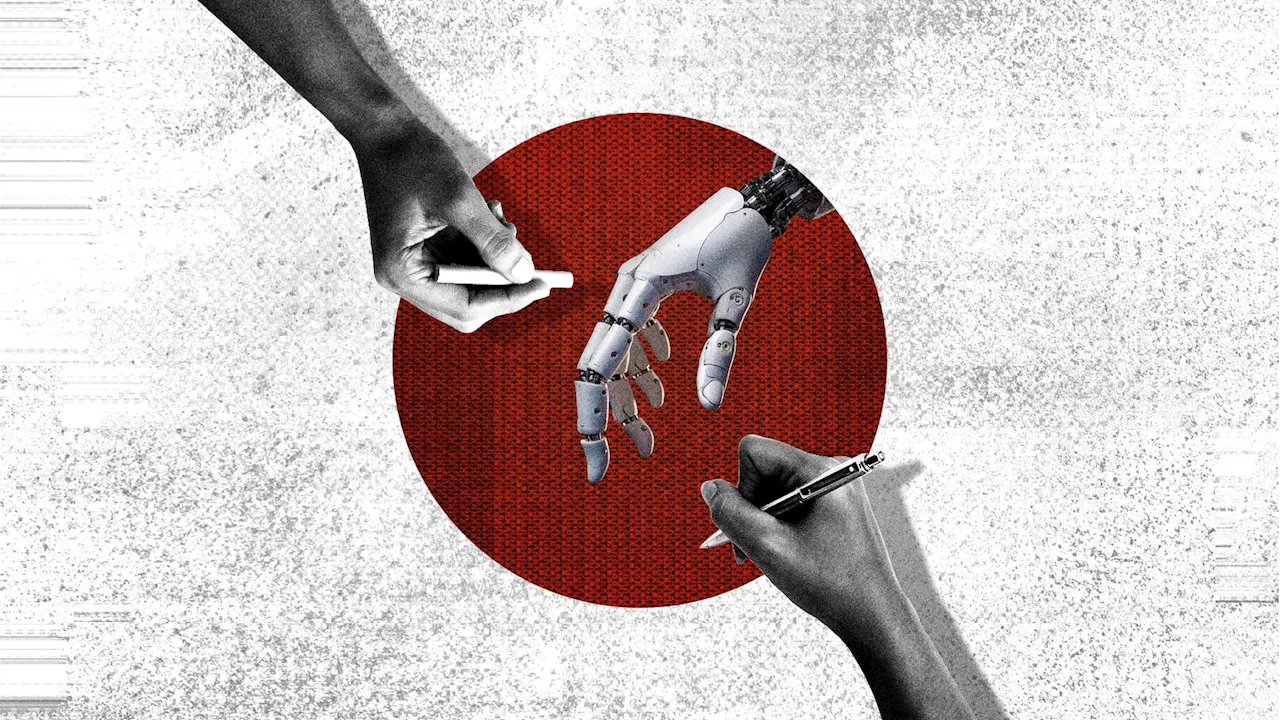This article explores the evolving nature of information in the digital age, challenging the traditional view that information solely reflects objective reality. Drawing on the works of Yuval Noah Harari and Harry Frankfurt, it examines how information has historically functioned as a tool for connecting people and shaping shared realities. The article further analyzes the implications of artificial intelligence (AI) in generating 'bullshit' (BS) and its potential to erode truth and critical thinking. It concludes by advocating for responsible information management that balances data integrity with narrative resonance, fostering both factual accuracy and meaningful human connection.
The mantra 'Just the facts' reflects a deeply held belief: That information is a collection of truths mirroring an objective reality. The more data we gather, the closer we inch toward a better understanding of the world.
But what if this view of information is incomplete, or even naive? Historian Yuval Noah Harari, in his book 'Nexus: A Brief History of Information Networks from the Stone Age to AI,' argues that information's primary role throughout history has been to connect people and not necessarily to represent truth. Stories, from ancient myths to corporate mission statements, don't just describe reality — they create it by stitching minds together into shared webs of meaning. This is not to say that information should not concern itself with truth. Instead, Harari recognizes that information, contrary to popular notion, is not necessarily concerned with facts and the truth. This idea takes on unsettling implications in light of philosopher Harry Frankfurt's concept of 'bullshit' (BS). To him, the person engaging in BS is a figure who, unlike the liar, has no regard for truth whatsoever. BS isn't about deception, says Frankfurt, but indifference to truth and facts. It is speech that, by preferring persuasion over accuracy, erodes people's collective capacity to grapple with facts. If Harari is right in saying that much of what passes for information is about forging social bonds than mirroring reality, and if Frankfurt's diagnosis rings true in an era of clickbait and spin, where does that leave us in this age of AI? What new challenges arise as chatbots become capable of generating plausible-sounding BS at unprecedented scales? Information, in Harari's view, actively shapes the world by weaving 'intersubjective realities' — things that are real not because they correspond to some external truth but because they live in the nexus between minds. For organizations, managing information means not just maximizing accuracy but nurturing narratives that connect people to a larger whole. The challenge is to create stories that are resonant and responsible — grounded on reality — while gesturing toward worthy aspirations. However, the line between a galvanizing story and manipulative spin is perilously thin. This is where Frankfurt's notion of BS becomes salient. To him, the BS-er is a more insidious figure than the liar, because while the liar at least implicitly acknowledges truth by trying to conceal it, the BS-er operates in a world where truth is simply beside the point. As AI chatbots gain the ability to generate fluent and convincing text, the problem gets more complicated. Trained on vast swaths of internet data, these models, indifferent to truth, are, by default, BS generators if not responsibly used by humans. Like funhouse mirrors that distort rather than mirror truth, AI chatbots optimize for what sounds fluent — a recipe for informational chaos without responsible human evaluation. Perhaps the task is not to choose between truth or connection and fact or fiction, but to responsibly bridge them — to weave information networks that bind people while keeping them grounded on reality. This means balancing data integrity with story resonance, building cultures that prize both accuracy and meaning-making. It means designing systems to inform and connect, not just capture attention; honing human discernment alongside AI efficiency; and curating content with an eye on not only the click-worthy but what's truly enriching. In an age where AI and BS can lead to vicious cycles, wise information management is more vital than ever. The future belongs to people who can craft resonant narratives rooted in rigorous respect for facts, who can harness information's connecting power while keeping faith with truth. The way forward lies in navigating tensions — between data and story, algorithm and judgment — with care and skill. In the end, what hangs in the balance of information management is how we nurture, rather than stunt, the innately human tendency to create meaning and desire the truth
INFORMATION AI TRUTH BULLSHIT CONNECTION NARRATIVE FACTS RESPONSIBLE INFORMATION MANAGEMENT
Philippines Latest News, Philippines Headlines
Similar News:You can also read news stories similar to this one that we have collected from other news sources.
 Navigating Binondo's Parking Puzzle: Your Guide to Finding a SpotBinondo, Manila's vibrant Chinatown, offers a feast for the senses with its delicious food, historical charm, and bustling atmosphere. However, finding parking in this historic district can be a challenge. This guide explores various parking options near Binondo, from dedicated car parks to street parking and hidden gems, ensuring your culinary adventure is smooth sailing.
Navigating Binondo's Parking Puzzle: Your Guide to Finding a SpotBinondo, Manila's vibrant Chinatown, offers a feast for the senses with its delicious food, historical charm, and bustling atmosphere. However, finding parking in this historic district can be a challenge. This guide explores various parking options near Binondo, from dedicated car parks to street parking and hidden gems, ensuring your culinary adventure is smooth sailing.
Read more »
 China's Steady Economic Growth in 2024: Navigating Challenges and Shaping Global ProspectsChina's economy achieved a commendable 5.0 percent GDP growth in 2024, driven by stimulus measures and a focus on high-tech manufacturing. Despite external challenges such as potential trade disputes and a fragile consumer sentiment, China's economic resilience and commitment to structural reforms offer optimism for continued growth and its role in the global economy.
China's Steady Economic Growth in 2024: Navigating Challenges and Shaping Global ProspectsChina's economy achieved a commendable 5.0 percent GDP growth in 2024, driven by stimulus measures and a focus on high-tech manufacturing. Despite external challenges such as potential trade disputes and a fragile consumer sentiment, China's economic resilience and commitment to structural reforms offer optimism for continued growth and its role in the global economy.
Read more »
 Navigating AI in the Classroom: Cebu Schools Grapple with Ethical Challenges and Educational OpportunitiesThis article explores the growing use of artificial intelligence in educational institutions in Cebu, Philippines. It highlights the perspectives of students and teachers on the benefits and challenges of AI integration, emphasizing the need for responsible use, ethical guidelines, and comprehensive teacher training to ensure a positive impact on learning.
Navigating AI in the Classroom: Cebu Schools Grapple with Ethical Challenges and Educational OpportunitiesThis article explores the growing use of artificial intelligence in educational institutions in Cebu, Philippines. It highlights the perspectives of students and teachers on the benefits and challenges of AI integration, emphasizing the need for responsible use, ethical guidelines, and comprehensive teacher training to ensure a positive impact on learning.
Read more »
 Navigating the Ethical Boundaries of Politics in the ClassroomThis article explores the delicate balance between a teacher's professional ethics and their civic rights in the context of political discourse. It examines the Code of Ethics for Professional Teachers, which prohibits partisan promotion and solicitation, while also acknowledging the importance of instilling civic values in the classroom. The article clarifies permissible and prohibited political activities for teachers, emphasizing the distinction between civic education and electioneering.
Navigating the Ethical Boundaries of Politics in the ClassroomThis article explores the delicate balance between a teacher's professional ethics and their civic rights in the context of political discourse. It examines the Code of Ethics for Professional Teachers, which prohibits partisan promotion and solicitation, while also acknowledging the importance of instilling civic values in the classroom. The article clarifies permissible and prohibited political activities for teachers, emphasizing the distinction between civic education and electioneering.
Read more »
 Navigating the Doctrine of Primary Jurisdiction in Administrative LawThis article delves into the doctrine of primary jurisdiction, a legal principle that governs the interaction between courts and administrative agencies in cases involving complex technical issues. It explores the rationale behind the doctrine, its exceptions, and illustrative case examples from the Philippine legal system.
Navigating the Doctrine of Primary Jurisdiction in Administrative LawThis article delves into the doctrine of primary jurisdiction, a legal principle that governs the interaction between courts and administrative agencies in cases involving complex technical issues. It explores the rationale behind the doctrine, its exceptions, and illustrative case examples from the Philippine legal system.
Read more »
 Navigating the Complexities of Data Privacy in APACThis article explores the challenges organizations face in balancing privacy practices with emerging technologies and the rapidly evolving regulatory landscape in the Asia-Pacific region.
Navigating the Complexities of Data Privacy in APACThis article explores the challenges organizations face in balancing privacy practices with emerging technologies and the rapidly evolving regulatory landscape in the Asia-Pacific region.
Read more »
